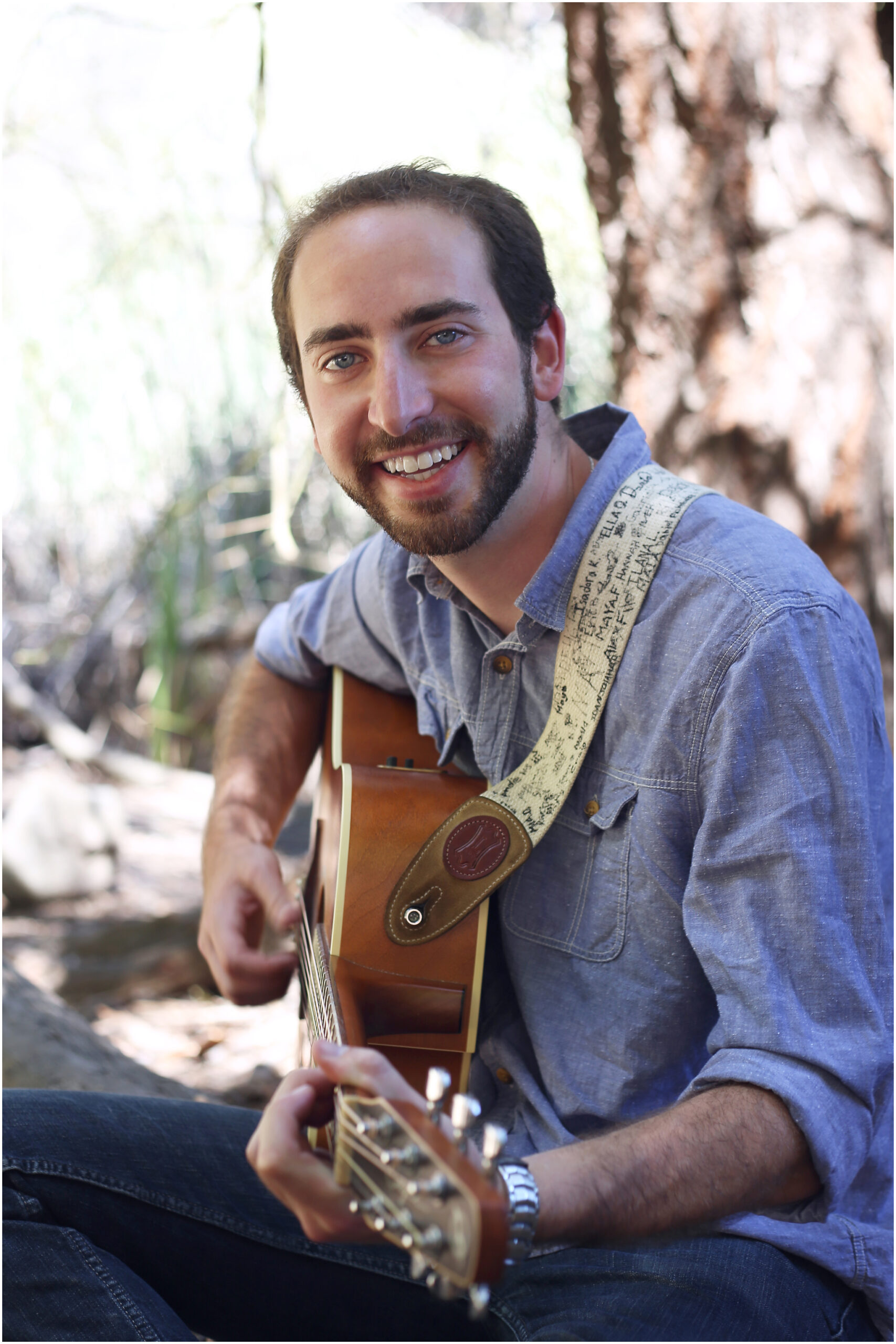Please enjoy a d’var Torah this week from Josh Warshawsky is a nationally touring Jewish musician, songleader, and composer. He writes new melodies inspired by Jewish teachings. Originally from Chicago, Josh has shared his original melodies with Jewish communities throughout the US, Canada, the UK, and Israel. He has released three albums of Jewish music. The newest album, “Chaverai Nevarech,” was a live album released in November 2018 along with a video series and teachings and available anywhere you find your music.
Josh spends his weekdays in rabbinical school at the Ziegler School of Rabbinic Studies in Los Angeles, and his weekends traveling to different synagogues and Jewish communities across the country sharing music and prayer. He is on the faculty of Songleader Boot Camp and leads the Ramah Shabbaton and the Ramah Chavurah. Josh has spent the past 18 summers at Camp Ramah in Wisconsin, and the last five summers teaching and performing at Ramah camps across the country.
Reflections on Parashat Miketz
by Josh Warshawsky
How do we count our days??
As a Jewish songwriter, I spend a lot of time thinking about the words we sing when we pray. Hebrew is such a rich language and our liturgy was crafted with incredible intention, building on that richness and employing wordplay, allusion, and other devices to add multiple layers of meaning and significance. Often times the language used in the Torah begs us to ask questions about it. The rabbis and commentators often say that the words of the Torah shout out, “Darsheini!” “Interpret me!” The opening words of this week’s parashah, Miketz, called out “Darsheini!” this week.
The opening verse of our parashah, Genesis 41:1, reads “ויהי מקץ שנתים ימים” and is usually translated as, “And so it was after two years’ time.” But that’s not exactly what the words mean. If we were to translate them literally, it might read, “And so at the end of two years of days.” Why does the Torah need to mention both years and days? Rabbi Meir Yechiel of Mogielnica answers this question by way of a parable. He says, “Once my father’s soul went up to heaven, and he noticed that up there with him was a very young person, but they called that person an elder. Right next to him was a very wizened and old looking person, and they called that person a child. The rabbi’s father asked, ‘this is the heaven of truth, so why are you talking like this?’ And they answered him, “This is the truth: the younger one is actually older in years, for in the years that she lived, she did much, and her days were numbered like years. And this older person, even though she lived eighty years, did not do much in the world, and is therefore considered like a child.’”
These words call on us to challenge our concept of time and think instead on impact. How can we make the days, weeks, and years that we have on this earth meaningful? The word “Miketz” means “end,” and serves as a warning for us. It says to us, “Be careful, my friends, that your years don’t pass by like days! Make something meaningful happen every day.”
I’m reminded of the Yehuda Amichai poem, “What is my Lifespan?”
“The years of my life I have broken into hours, and the hours into minutes and seconds and fractions of seconds. These, only these, are the stars above me that cannot be numbered.
What is my lifespan? I’m like a man gone out of Egypt. The Red Sea parts, I cross on dry land, two walls of water on my right hand and on my left. Pharoah’s army and his horsemen behind me. Before me, the desert, perhaps the promised land too. That is my lifespan.”
Every day has the potential to be a year. Have you ever heard someone describe their camp experience and say that the days passed by like weeks? When we fill our lives with friendship, love, prayer, and meaning, we expand the impact of those days for us. On this Shabbat, I hope that we can take some time to ask ourselves and those we love this question, so that we can continue to turn our days into weeks, and our weeks into years.
Shabbat Shalom.






